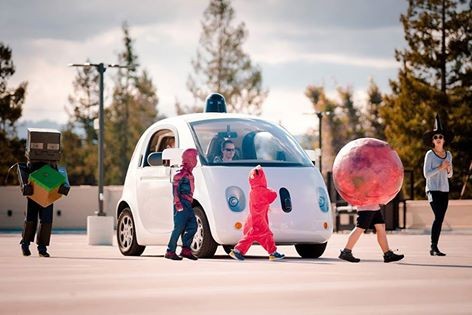Tech giant Google has successfully secured a patent on Nov. 24, Tuesday, for the company's self-driving cars to communicate better with drivers and pedestrians through features such as visual signs and even mechanical hands.
One of the strange technologies included in the publicly available patent is the inclusion of robotic eyes that would indicate to a pedestrian that the self-driving car is aware of the individual.
Likewise, Google has also revealed other notable communication tools such as audio signals that would utilize a speaker mounted on the vehicle, according to Quartz. The audio alerts that would sometimes be the vocal equivalent of visual signs would help the company's self-driving cars interact with other drivers and individuals on the road.
The visual signs in the form of light-up alerts would be placed on the front or side of the vehicle and would ideally have texts to indicate whether a pedestrian is allowed to cross in front of the car or not if the self-driving car is actually about to continue driving forward.
Moreover, the robotic hands will be copying the usual movements done by humans to signal fellow drivers. Despite the good intentions of Google about the mechanical hands, the company is unsure whether pedestrians and drivers would really respond to the robotic hands of a self-driving vehicle.
Meanwhile, one self-driving car of Google was actually called over by police officers in Mountain View, California because of the vehicle's apparent slow driving, according to BBC News.
The California Department of Motor Vehicles made an accident report regarding the vehicle's incredibly slow performance and noted that the automated Google car was supposedly too wary of driving faster than usual and caused a bit of traffic at an eastbound lane.
While the automated Google car drove at only 24 mph while at a 35mph road, the company has noted that the speed has been set at 25 mph to provide other drivers and pedestrians with security.



























